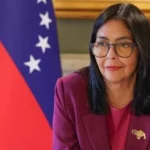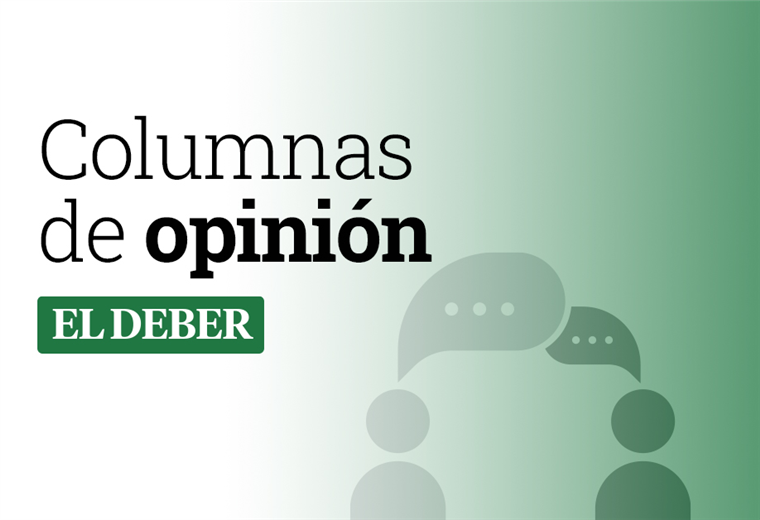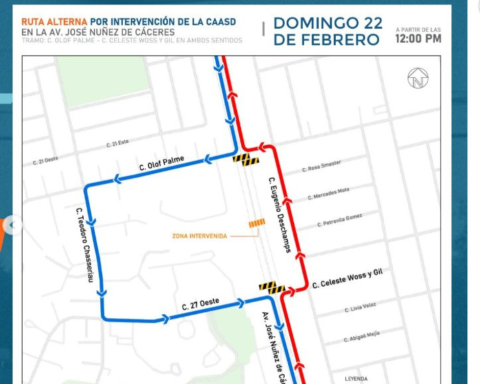On January 29, 2003, a key pressed incorrectly when typing an email address was about to destroy the Chilean financial system. It was all because the then secretary of the president of the Central Bank, Pamela Arandahad entered the night before the computer of his boss, the president of the Central Bank, Carlos Massadto send insider dollar information to his lover and CEO of brokerage Inverlink, Enzo Bertinelli. The next day, Massad realized that an email had bounced due to misspelling the address and the Corfo-Inverlink case exploded. as they titled sandra radic and Ivan Weissman in his chronicle of The counter in 2015 that was “the day the Chilean financial system was about to go bankrupt and nobody knew about it.”
The Corfo-Inverlink case shook the national political and financial scene to levels comparable only to the banking system crisis of 1981. It was in the midst of that situation, probably without knowing the real consequences of what was happening, that the then president Ricardo Lagos He appeared one morning in his living room chair, explaining that what was happening was “as if they entered my house, stole a vase and then took it to a reducer. That is the role of Inverlink… but the vase is discovered and obviously I am going to recover it because the vase is mine”.
You may also like:
After the vase theory was known, Troy burned because it was not true that the Chilean State could recover its vase, rather it was the opposite, and the holders of Chilean sovereign bonds were about to invoke the “cross default” clause. which would have bankrupted the government. It is in this dark setting that Ricardo Lagos and his finance minister, Nicolas Eyzaguirresurprisingly released the letter that immediately cooled the temperature of the Chilean and international markets by announcing to Vittorio Corbo as the new president of the Central Bank.
The appointment of alberto van klaveren in the Ministry of Foreign Affairs, keeping proportions, it has similarities with the effect that the appointment of Vittorio Corbo had after the episode of the vase. Both appointments returned the soul to the body, in the case of Corbo it went to the financial market, in the case of Van Klaveren to our neighbors and Chilean diplomacy.
President gabriel boric 12 months into a series of errors and excesses in the field of international relations, “it was impossible to have done worse” comments an important Chilean diplomat. The main person responsible for this excess is President Boric himself, who did and undid without the possibility of a counterbalance by the chancellor Antonia Urrejolawhile it was celebrated by a team of inexperienced advisors from the Second Floor who did not seem to realize the confusion that the President caused among the neighbors and in the international arena.
Difficult moments
Diplomacy is an art where things are not told, they are not said, they are only executed, hopefully in silence and with great modesty. It is the results that speak in diplomacy and they are never celebrated, they are only kept in the drawer of the objectives achieved.
President Boric’s list of errors is long, very long and it is not necessary to remember it in detail because it is boring and exhausting. The last episode was last January, during the VII CELAC Summit in Buenos Aires, Argentina, when the President told the world what he thought about the complex political situation in Peru after the removal and detention of the president. Pedro Castillo for attempting a “self-coup”, which resulted in Congress appointing the parliamentarian as interim president Dina Boluarte and serious social mobilizations took place, some of them very violent.
In this context, Boric declared in front of the leaders attending the meeting and to the international press that: “we cannot be indifferent when today in our sister Republic of Peru, with the Government under the command of Dina Boluarte, people who go out to march, to claim what they consider fair, they end up shot by those who should defend them. More than 50 people have lost their lives and that should shock us.”
He also took the opportunity to recall dark times, “it is also unacceptable that the universities of America revive the sad scenes of the times of the dictatorships of the southern cone, as happened recently with the violent entry of the police into the University of San Marcos. Versus these outrages, I reiterate Chile’s will to contribute to all multilateral spaces to accompany an inclusive dialogue capable of building democratic governance and ensuring respect for human rights”.
As the former Chilean ambassador and academic said after hearing it Jose Rodriguez Elizondo, “due to its geopolitical situation, Chile should take into account the effects of intervening in foreign sovereignties. International relations are State policy, regardless of the ideology of the rulers. From that point of view, these statements were not prudent and do not contribute to the better regional position of our country”.
But the worst part of the presidential speech, according to Rodríguez Elizondo, was that the president was opening a Pandora’s box: “it’s a matter of looking at our neighbors. Bolivia has no diplomatic relationship with us and Evo Morales he is a great activist against our national interests. With Argentina we have conflicts over sovereignty and pending diplomatic problems. With the only neighbor that we did not have objective problems with, it was Peru and now, against our historical mood, we took the initiative to tell its president how she should face the developing crisis, ”he said in an interview published in Ex-Ante.
All this display of President Boric’s diplomatic skills in Buenos Aires was seasoned with the leak of a recording that gave an account of the meeting where Foreign Minister Urrejola and her advisers designed, with the language of a soccer DJ, the Chilean government’s response to the outburst of the Argentine ambassador in the country. The recording was known worldwide while Boric and Urrejola attended the VII Celac Summit in Buenos Aires as guests of the Argentine government.
This and the various other events that have occurred in the last 12 months explain the surprise departure of the entire staff of the Foreign Ministry. Never, since the return of democracy in 1990, had that ministry suffered a raid of the level it suffered on Friday, when the chancellor left, hers two undersecretaries of hers and the entire clique of advisers who accompanied them. The arrival of Alberto van Klaveren to the top floor of Teatinos 180 will allow the Chilean diplomatic world to sleep more peacefully and, why not, several foreign ministries of neighboring countries.
How relevant it would have been for the government that the name of the new chancellor was unblemished and gave guarantees to all sectors that, Martha Mauras, the first candidate to fill the position ended up discarded minutes before the cabinet change because an old posting on Twitter was made public where she spoke in favor of immigration. If it was necessary to have the background certificate so clean, the new Minister of Culture, James Aguirreor Sports, James PizarroThey had a much more sensitive background than Mrs. Maurás.
With Alberto van Klaveren, the panzer of Chilean diplomacy arrives at the Foreign Ministry, a person who has silently participated in all the complex and critical moments that our international relations have faced in the last thirty years. He was part of the team that pulled the strings to bring back the former dictator Augusto Pinochet from the United Kingdom and thus calm down the tense political atmosphere in which the 1999 elections took place and which allowed Ricardo Lagos to be elected to La Moneda, the first president. socialist after the 1973 coup d’état. In the same secretive way, he operated as Chile’s agent before The Hague when the pending border disputes with Bolivia and Peru were being discussed, and who knows how many other operations of this type he may have commanded under the cloak of discretion and diplomacy.
The other forado of the vase
But in this latest cabinet change, President Gabriel Boric’s vase did not appear broken only on the issue of international relations. One of the biggest and most complex fractures was in the foolish attempt to implement so many “beautiful ideas” vociferated during the campaign and in his first months in La Moneda.
In this cabinet change, ministers came out that the President estimated had had a terrible and/or reprehensible management of their portfolios. In the case of the chancellor, the president had the courtesy to invite her to his office three days before meeting her replacement to tell her personally that he would remove her from office, the president did not do that with any of the other ministers who left the government. It is likely that the president had this gesture with Urrejola because he felt a certain responsibility in his mismanagement, but it is decisive that he did not show this deference to the other ministers because he was upset by the poor performance they had in their respective portfolios. Culture, Public Works, Sports and Science were serious problems for the government.
Something similar happened in the case of the undersecretaries where it was untenable to keep the original creator of the “side letters” of the TPP11, Jose Miguel Ahumadaor the media undersecretary of Public Health, Christopher Square Nahum, just to name a few. The vast majority of the undersecretaries who left was because they were inoperative or seriously hindered the work of their ministries. The rest of the undersecretaries removed -the least- was to equalize forces between I Approve Dignity and Democratic Socialism.
The need for a balance of power after a year in office occurs three months after the first cabinet change in which new faces of Democratic Socialism joined the political committee and the contribution made by this sector with Mario Marcel, Manuel Monsalve, Carolina Toha, Carlos Montes, Ana Lya Uriarteamong others.
This change of President Boric’s cabinet at a first and quick glance might seem like a minor change, only in sectoral portfolios, which was intended to achieve balances of power between the two ruling coalitions, but it is not like that, on Friday Boric acknowledged that governing does not it was simple and required experienced and efficient ministers who achieved concrete results. Because, finally, as President Lagos recognized after the Corfo-Inverlink case, things were not as easy as going and “getting the vase back because the vase is mine.”

















